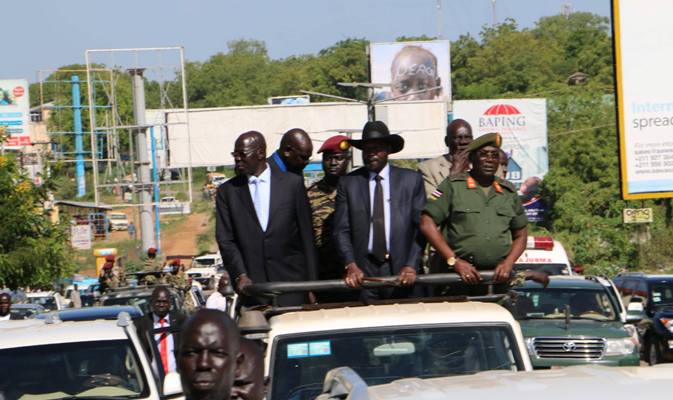Juba regrets comments by Kenyan MP on South Sudan gov’t legitimacy

December 25, 2016 (JUBA) – Juba on Sunday regretted statements by a Kenyan Member of Parliament (MP) describing the government of President Salva Kiir as “illegitimate”.
“That is not correct. The Transitional Government of National Unity is not illegitimate. Those calling it illegitimate government need to update themselves. It is the government mandated by the agreement in which the President of the Republic of Kenya was the rapporteur of the processes of the negotiation initiated by the region,” said Tor Deng Mawien, Presidential Adviser on Decentralization Affairs and Intergovernmental Linkage
“This is also the government which was formed because by approved of the parliament, which is the house of representatives of the citizens of this country. The members agreed to renew its mandate,” Mawien further said in statements to Sudan Tribune on Sunday.
The presidential aid was reacting to a Kenyan lawmaker who called South Sudan’s government “illegitimate” and urged the United Nations to establish a trusteeship to restore peace and order to the troubled country.
“People are being killed without rhyme or reason; homes have been destroyed almost everywhere; gang raping of women by undisciplined soldiers goes on unabated; and hunger looms large in every village or in the forests where people are hiding,” says Anyang’ Nyong’o, a senator from Kenya’s Kisumu County.
“All this happens when there is a government in Juba claiming to be in charge and to rule the country legitimately. Nothing could be further from the truth,” he adds.
Senator Nyong’o’s remarks, published as a column in the weekend edition of The Star newspaper, also endorse the position of Professor Mahmood Mamdani of the African Union Commission of Inquiry that South Sudan be placed under an international caretaker government.
Mamdani has recommended that the African Union should lead this effort, whereas Senator Nyong’o today advised instead that the United Nations should lead the trusteeship.
Regional powers, the U.S. and the UK last year ignored Mamdani’s recommendation that President Salva Kiir and rebel leader Riek Machar be excluded from post-war leadership. Instead, they backed an August 2015 deal that made them co-principals in a new power-sharing government.
The power-sharing deal broke down in July this year after clashes erupted in Juba, sending Machar running and leaving Kiir alone in power backed by only a rump faction of SPLA-IO rebels. In an attempt to consolidate his authority and secure more international legitimacy after the breakdown of the coalition government, Kiir recently called for a ‘National Dialogue’.
Senator Nyong’o criticized countries that have endorsed the new status quo instead of supporting the original power-sharing agreement, and he predicted that the National Dialogue is “unlikely to provide anything new.”
“The ill-fated decision by some [UN] member states to shelve the Arusha Accords and the Addis Ababa Agreement and seek to stabilize the current government in Juba in exclusion of Riek Machar will not lead to the peace and stability being sought.”
“It is not the person of Riek Machar which matters; it is the social forces and interests he represents, or such interests which see him as ‘their leader’. This may be unpalatable to some people inside and outside South Sudan, but ignoring it in working out a peace formula is an exercise in futility.”
Nyong’o further referred the proposal by Professor Mahmood Madani, who holds a political department at Uganda’s Makerere, who advocated for international trusteeship, as the viable alternative to the crisis.
“I support Mamdani one hundred and one percent. Many other South Sudanese intellectuals, including Dr. Lako Jada Kwajok, have called for trusteeship in South Sudan. This proposal has increasingly gained support the more the conflicting forces become intolerant and the more lives are lost.”
(ST)
